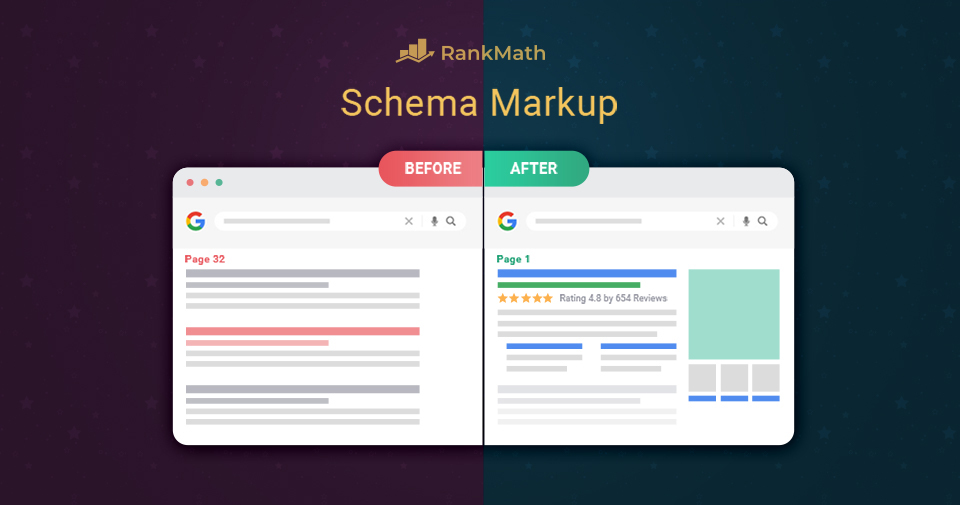In the ever-evolving world of Search Engine Optimization (SEO), staying ahead of the competition requires more than just quality content and backlinks. One crucial element that can significantly boost your local SEO efforts is schema markup. This blog will explore what schema markup is, how it can be implemented, its types, and its importance in local SEO. Additionally, we'll cover some practical examples and tools to help you get started.
What is Schema Markup?
Schema markup is a form of microdata that you can add to your website's HTML code to help search engines understand your content better. Essentially, it's a code that provides additional context to your webpage's content, making it easier for search engines to interpret and display relevant information in search results.
Key Benefits of Schema Markup
- Enhanced Search Results: Schema markup can transform your search results by adding rich snippets, such as reviews, ratings, prices, and event dates, making your listing more attractive to users.
- Improved Click-Through Rates (CTR): Rich snippets can lead to higher CTR as users are more likely to click on results that provide additional useful information.
- Better Local SEO: For local businesses, schema markup can improve visibility in local search results, driving more traffic to your site and potentially increasing foot traffic to your physical location.
Types of Schema Markup
There are various types of schema markup that you can implement on your website, depending on the nature of your business and the content you want to highlight. Some common schema markup types include:
- Organization: Provides information about your business, such as name, address, phone number, and logo.
- Local Business: Specifically designed for local businesses, including details like business hours, address, and customer reviews.
- Product: Used for eCommerce sites to highlight product information, such as price, availability, and reviews.
- Event: Useful for promoting events, showing event dates, locations, and ticket availability.
- Review: Displays customer reviews and ratings.
- FAQ: Highlights frequently asked questions and their answers.
- How-to: Offers step-by-step instructions for completing a task.
Where to Put Schema Markup in HTML?
Schema markup can be added directly to your HTML code. There are three primary formats you can use to implement schema markup:
- Microdata: Embedded within the HTML content using specific attributes.
- JSON-LD: A JavaScript notation placed within the
<script>tags in the HTML document's head or body. - RDFa: Uses attributes to layer structured data within existing HTML content.
Example of Adding Schema Markup (JSON-LD)
Here's a basic example of adding schema markup to an HTML page using JSON-LD format:
<!DOCTYPE html>
<html lang="en">
<head>
<meta charset="UTF-8">
<meta name="viewport" content="width=device-width, initial-scale=1.0">
<title>Local Business</title>
<script type="application/ld+json">
{
"@context": "http://schema.org",
"@type": "LocalBusiness",
"name": "John's Bakery",
"address": {
"@type": "PostalAddress",
"streetAddress": "123 Main St",
"addressLocality": "Anytown",
"addressRegion": "CA",
"postalCode": "12345"
},
"telephone": "+1-800-555-1234",
"openingHours": "Mo-Fr 09:00-17:00",
"image": "http://www.example.com/image.jpg"
}
</script>
</head>
<body>
<h1>Welcome to John's Bakery</h1>
<p>Best bakery in town!</p>
</body>
</html>
Is Schema Markup Necessary?
While schema markup is not mandatory, it is highly recommended for several reasons:
- Enhanced Visibility: Schema markup can significantly improve your search engine visibility by providing rich snippets.
- Competitive Advantage: Websites using schema markup often have a competitive edge over those that don't, as they appear more informative and engaging in search results.
- Better User Experience: By displaying additional information directly in search results, users can make informed decisions more quickly.
Why is Schema Important in SEO?
Schema markup plays a crucial role in SEO for the following reasons:
- Improves Search Engine Understanding: Schema helps search engines better understand the context of your content, leading to more accurate indexing and ranking.
- Increases CTR: Rich snippets make your search results stand out, potentially increasing your CTR.
- Boosts Local SEO: For local businesses, schema markup can improve your chances of appearing in local search results and Google Maps.
- Provides Structured Data: Structured data enables search engines to create rich, informative search results, enhancing user experience.
Schema Markup SEO Example
Let's consider a local restaurant that wants to improve its visibility in local search results. By adding schema markup, the restaurant can provide search engines with detailed information about its menu, customer reviews, business hours, and location. This not only helps search engines display relevant information to users but also makes the restaurant's listing more appealing.
Example:
<script type="application/ld+json">{"@context": "http://schema.org","@type": "Restaurant","name": "Pasta Palace","address": {"@type": "PostalAddress","streetAddress": "456 Foodie Lane","addressLocality": "Gourmet City","addressRegion": "NY","postalCode": "67890"},"telephone": "+1-800-555-6789","menu": "http://www.pastapalace.com/menu","aggregateRating": {"@type": "AggregateRating","ratingValue": "4.5","reviewCount": "150"},"priceRange": "$$","openingHours": "Mo-Su 11:00-22:00","servesCuisine": "Italian"}</script>
Tools for Checking Schema Markup
To ensure your schema markup is correctly implemented and error-free, you can use various tools:
- Schema Markup Checker: Tools like Google's Rich Results Test or Schema.org's validator can help you verify your markup.
- Schema Markup Validator: This tool checks your structured data for errors and suggests corrections.
- Google Search Console: Provides insights and reports on your structured data.
Conclusion
Schema markup is a powerful tool for enhancing your local SEO efforts. By providing search engines with additional context about your content, you can improve your search engine visibility, increase your CTR, and enhance user experience. While schema markup is not mandatory, it is a highly recommended practice that can give you a competitive edge in the ever-evolving world of SEO.
By understanding the different types of schema markup and implementing them correctly, you can ensure your website stands out in search results, driving more traffic and potential customers to your local business. So, start using schema markup today and watch your local SEO performance soar!








No comments:
Post a Comment